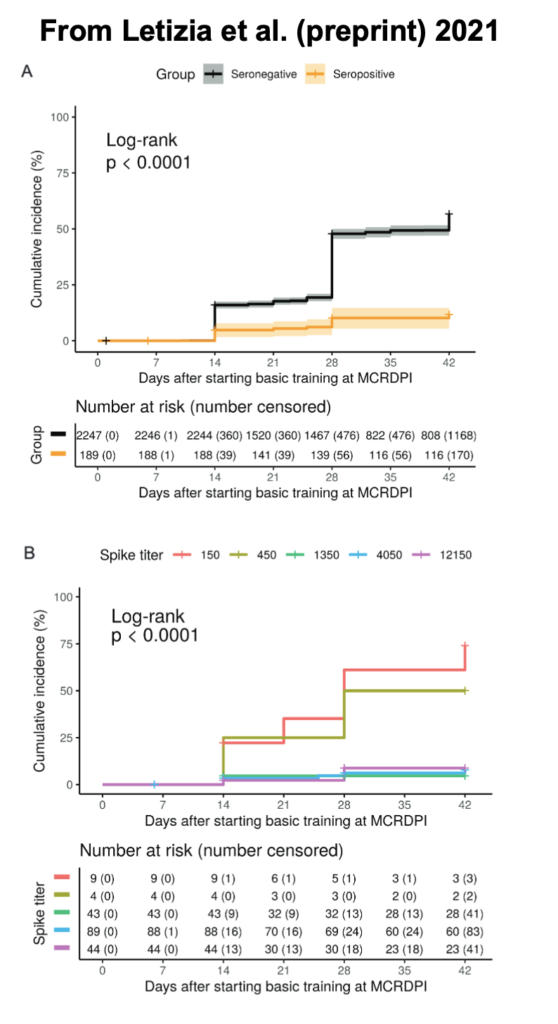Young adults with evidence of prior COVID-19 (18-20y) had a circa 5 times lower (~10%) risk of subsequent infection vs. those who were seronegative, i.e. not previously infected, individuals (~48%) – see the figure to the left below.
New preprint study:
The findings in this preprint thus basically indicate that detection of antibodies from a prior SARS-CoV-2 infection – being seropositive – confers protection from a new SARS-CoV-2 infection, but that re-infections can occur. This is a rather small study and a preprint, so the findings have to be interpreted with caution (but they fit with other data, see further down).
Another interesting finding was that lower IgG titers against the Spike protein at baseline was associated with later risk of re-infection (lower part of figure below). Antibodies from the seropositive individuals who later became re-infected, also had significantly lower neutralizing activity against the virus (tested in vitro), compared with seropositive individuals who did not become re-infected.

Furthermore, in individuals with PCR-verified re-infection, viral loads were about 10 times lower vs. those suffering from their first SARS-CoV-2 infection (analyzed through multiple PCR targets). Viral load is an important determinant of the risk of spreading COVID-19 (see this new publication here and this summary), so lower viral load in those who are re-infected may lead to lower risk of transmitting COVID-19.
The study found a very high percentage of asymptomatic infections. They did not however find that those with signs of re-infection were significantly more often asymptomatic, compared with seronegative individuals (84% vs 68%, p=.13).
This was a prospective study of 189 seropositive & 2,247 seronegative participants, assessed over a 6-week period with PCR for SARS-CoV-2.
Several prior studies have also found that not all individuals develop the same level of antibody-reflected immunity after a SARS-CoV-2 infection. The circa five times lower risk of reinfection fits with other prospective data, such as that from a large cohort (n=6,614) of healthcare workers in the UK. In that study, they found 83% lower risk of re-infection in individuals with prior COVID-19 (using up to around 1.9 million days of follow-up data). See also this thread and the actual preprint.
As always, preprints have to be interpreted with caution (they are not peer-reviewed and not published in final form in a scientific journal).
Best,
Jonathan
